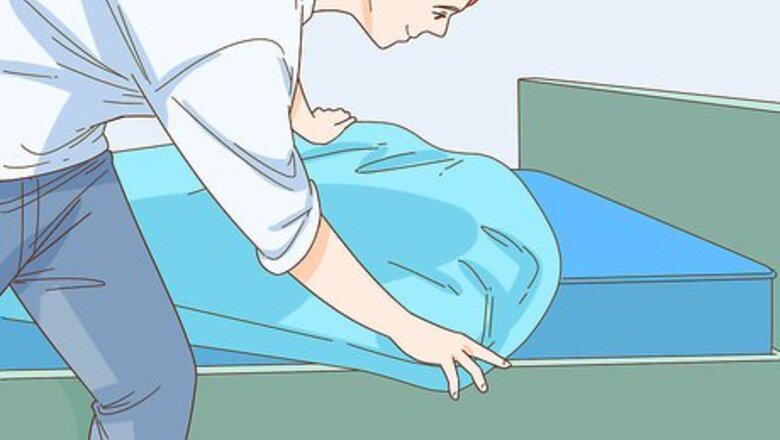
views
Deodorizing and Vacuuming the Mattress
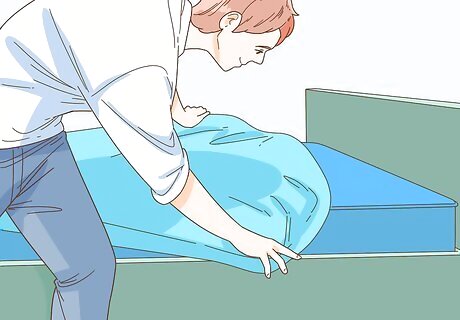
Strip the bed of all blankets, sheets, and pillows. You need to remove everything from the mattress before you begin. If you have a mattress topper, you’ll want to remove that as well, exposing the mattress completely. Pillows and mattress toppers absorb a lot of sweat and dead skin cells when you are sleeping, so these should be washed every few weeks, depending on individual need.
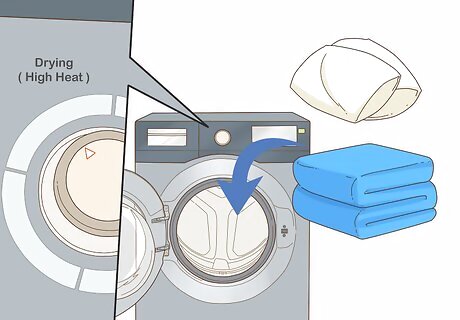
Wash and dry all the bedding with high heat to clean and sanitize. Washing your sheets, pillows, pillowcases, and mattress toppers with hot water in your washing machine and drying them on high heat will sanitize, deodorize and clean them. Depending on the size and materials of your bedding, you may need to take them to a laundromat or a dry cleaner. Review care instructions on the tags of the bedding to be sure. Many pillows are safe to wash in your washing machine. Check the tag on the pillow to find the instructions for cleaning it.
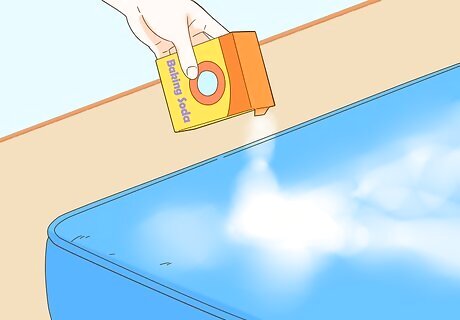
Deodorize the mattress by sprinkling baking soda all over it. Baking soda does a great job at removing odors from fabrics. For a twin-sized mattress, sprinkle at least 1 cup (240 ml) of baking soda evenly all over it. If your mattress is bigger or smaller, you can adjust the quantity accordingly. A queen or king-sized mattress may require the whole box of baking soda. You can buy commercial scented deodorizing powders, but baking soda doesn’t have all those chemical additives and works just as well. Mix in a few drops of essential oil to the baking soda before sprinkling it on if you’d like to lightly perfume your mattress. Use peppermint, lavender, or eucalyptus to help deodorize and remove dust mites. Work a small amount of white vinegar or laundry detergent into the baking soda to help penetrate and remove any stains from your mattress.
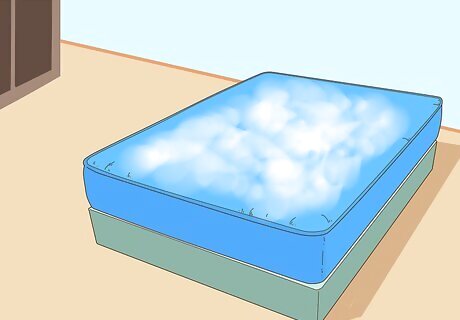
Allow the baking soda to sit on the mattress for at least 1 hour. Letting the baking soda sit gives it time to absorb oils and smells. If the mattress has a strong smell, like urine, you may want to let the baking soda sit longer to ensure all the smell is removed. If you can, allow the baking soda to sit for up to 24 hours for really tough smells.
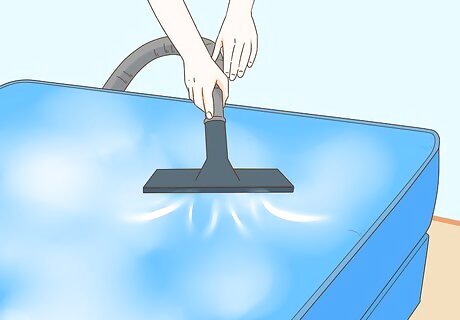
Vacuum the mattress slowly and thoroughly with the hand attachment. After the baking soda has had time to deodorize the mattress, run the vacuum hand attachment slowly in short strokes over the entire mattress. Hold the vacuum in place longer in areas of frequent contact with skin, like where you lay your head and your feet, to suck up all the dead skin cells and dust mites. You can use any hand attachment that came with your vacuum to clean your mattress, though a wide-mouth hose attachment with a rotating brush would work best. Vacuuming prior to steam cleaning is important because you want to remove as much dirt and loose fibers as you can so the steam cleaner can penetrate deep into the mattress.
Applying Steam
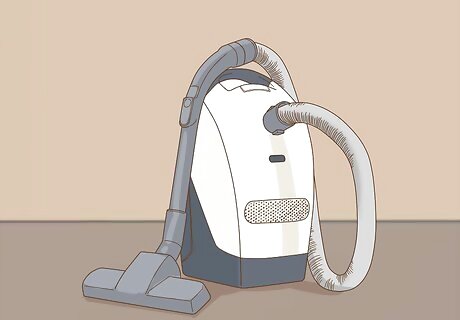
Choose a steam machine that fits your needs and budget. Any machine that heats the water to at least 212 °F (100 °C) will work. You can use your iron if it has a steaming function, a clothes steamer, a household steam cleaner, or a large commercial rental. Most household carpet cleaners do not get the water hot enough to kill bacteria, dust mites, and bed bugs. Check the steamer's specifications to make sure it will get hot enough.
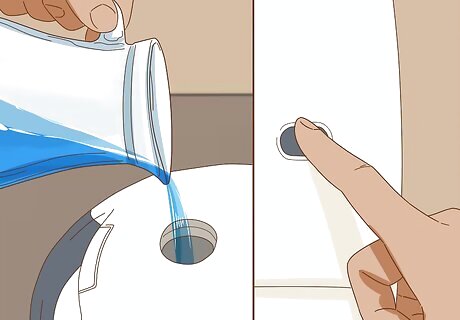
Fill and heat the steamer according to the manufacturer's instructions. Most steamers will have a tank for water, a motor that generates heat, and a wand for applying the steam. Fill the water tank to the manufacturer's suggested level and turn on the machine to allow it to heat up. Be sure to read the owner's manual carefully for instructions on safe and proper use.
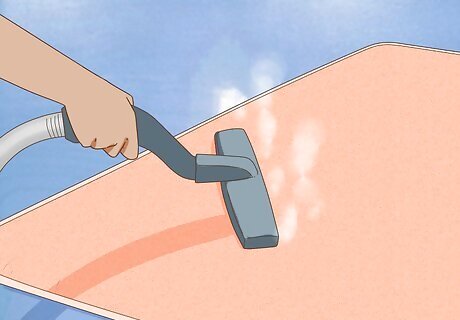
Apply the steam to the mattress top using long and slow strokes. Hold the steamer just above but not touching the mattress. Begin by applying the steam at the top left corner of the mattress in 2 feet (61 cm) strokes. Move slowly to the right and down in even rows until you have covered the whole mattress top in hot steam. The mattress should be damp but not soaking wet from the steam or it will take a long time to dry. If you think the steam is making the mattress too wet, either turn down the dial for the amount of steam released if available or hold the steaming wand a little farther from the mattress.
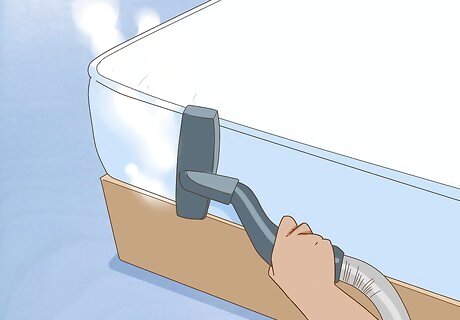
Steam the sides of the mattress for a deeper clean. Run the steamer along the sides of the mattress, working from top to bottom, to achieve maximum steam penetration This ensures that as much bacteria, mites, or bed bugs as possible are killed. Many mattresses made today are one-sided and never flipped so you would not need to steam the underside. If your mattress is double-sided or the bottom is dirty, wait until the top is completely dry, flip it over, and restart the whole process.
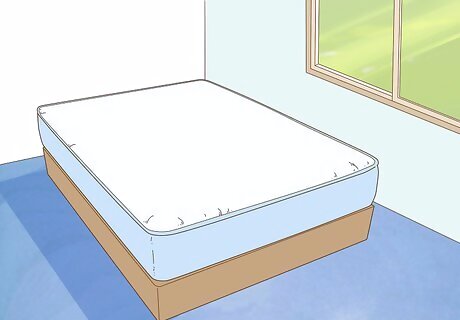
Wait 2-4 hours for the mattress to dry completely. Depending on how much steam you used to clean the mattress, it will need at least 2-4 hours to dry completely. To speed up the process, run fans in the room, open the windows, and move the mattress to an area in the room with direct sunlight, if possible. If you have a wet/dry vac or carpet steamer, you can use it to help suck any excess moisture from the mattress following steaming. If you have a clean area outside, you can also move the mattress directly into the sun for it to dry.
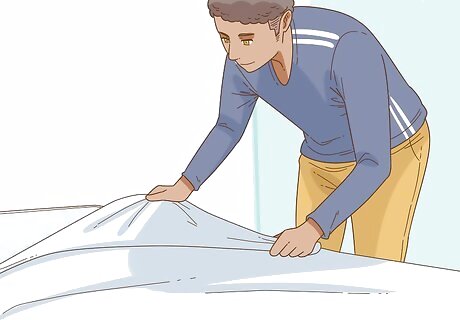
Cover the bed with clean linens once it's fully dry. Before you put your bedding back on the bed, double check it by pressing down with a dry hand or dry towel to see if there is any lingering moisture. Laying on a damp or moist mattress can promote bacteria and mold growth, so it's important to make sure it is completely dry before covering it and sleeping on it. If you began the process early in the morning, you should be able to sleep on the mattress by that night.



















Comments
0 comment